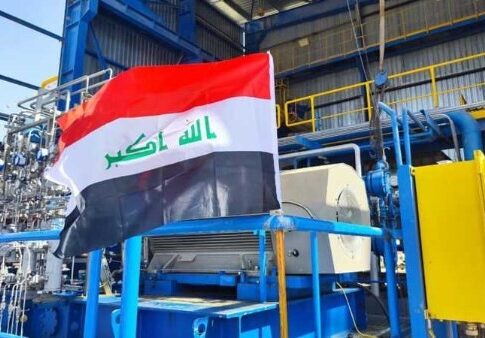In a significant development for the Middle East’s energy landscape, Iraq has officially greenlit the construction of the Basra-Haditha oil pipeline, a $4.6 billion project aimed at enhancing the nation’s oil infrastructure. As reported by local media, this ambitious endeavor is part of the Iraq-China agreement and will be executed by the state-backed Basra Oil Company along with the Oil Projects Company.
The Basra-Haditha pipeline is set to play a crucial role in transporting crude oil to Iraq’s central and southern regions, thereby optimizing the distribution network across the country. With Iraq’s current oil production averaging nearly four million barrels per day (bpd), this project is pivotal to the nation’s strategic goal of ramping up production to six million bpd by 2028, according to industry reports from Reuters.
Iraq, as the second-largest oil producer in the Organization of the Petroleum Exporting Countries (OPEC), faces the ongoing challenge of balancing its production quotas with ambitious capacity expansion targets. The new pipeline is expected to significantly contribute to meeting these objectives, enhancing both domestic supply and export capabilities.
Beyond the pipeline, Iraq’s energy strategy includes awarding oil and gas concessions to international companies. Early in 2024, the nation assigned several concession sites to 22 global firms, signaling its openness to foreign investment and expertise. An official report by Iraqi AlSabaah newspaper in October mentioned plans to offer additional concession sites in 2025, further underlining Iraq’s commitment to expanding its energy sector.
Iraqi Oil Minister Hayan Abdel Ghani highlighted in September that these initiatives would boost the country’s gas production by an impressive 3.459 billion cubic feet per day. Additionally, they are expected to increase Iraq’s recoverable oil reserves to 160 billion barrels, up from the current estimate of around 145 billion barrels.
The Basra-Haditha pipeline is not only significant for Iraq’s domestic market but also holds implications for international energy markets. The project aligns with broader regional dynamics where countries are seeking to modernize infrastructure and secure energy supply chains amidst growing global demand.
Furthermore, the involvement of China through the Iraq-China agreement reflects the deepening economic ties between the two countries, with China continuing to play a strategic role in Middle Eastern energy projects.


